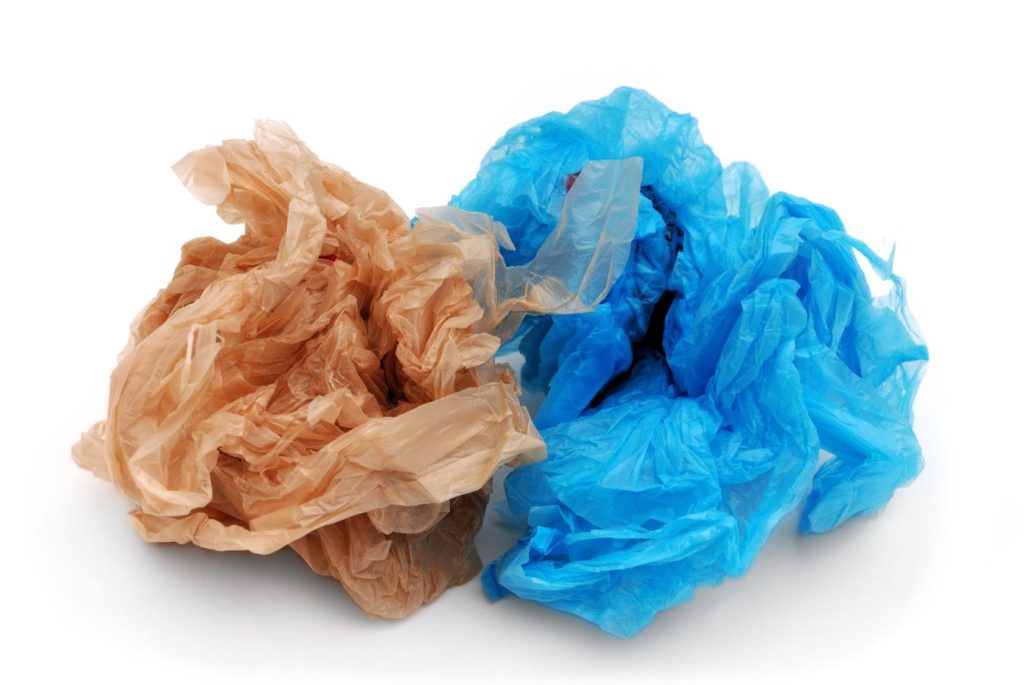Plastic is a pervasive material that ends up in landfills or incinerated due to the challenges of recycling. Companies like ExxonMobil are pushing for the government to allow them to label plastics as “recyclable” even though most of them will never actually be recycled. These companies argue that if it’s possible to recycle, no matter how limited that possibility is, it should be labeled as such. This effort has been criticized as a way for the plastics industry to make the public feel better about using plastic bags again, even though the environmental impact of chemical recycling is questionable.
The Federal Trade Commission is currently revising its Green Guides, which set guidelines for what companies can label as “recyclable.” This is a crucial decision as both companies and state regulators rely on these guidelines. States like California have been implementing restrictions on single-use plastics to promote recyclable and compostable materials. If the new guidelines deem plastic bags as “recyclable,” it could hinder efforts to reduce plastic usage and promote more sustainable alternatives. The argument in favor of this loose definition of recyclable relies heavily on chemical recycling, which has raised concerns among environmentalists due to its emissions and impact on marginalized communities.
Phaedra Ellis-Lamkins, the former CEO of Green For All, has shifted her focus to helping utilities collect unpaid bills without being punitive through her startup, Promise. By using text messages and zero-interest payment plans, Promise has become a $520 million powerhouse in helping municipalities and utilities collect delinquent bills. With the increasing financial strain on consumers due to rising costs, Ellis-Lamkins believes that understanding why people can’t pay their bills is crucial in creating fairer payment solutions. With the need to strengthen the grid due to climate change, utilities are facing challenges that are not going away, making sustainable payment solutions essential.
Celadyne, a company led by founder and CEO Gary Ong, recently landed a contract with General Motors to supply its technology for fuel cells in heavy-duty vehicles. Celadyne specializes in modifying fuel cells to improve durability, addressing issues such as catalyst loading and membrane thinning that contribute to fuel cell wear in heavy-duty applications. By using their technology, Celadyne expects their fuel cells to last 15 to 20 years in a truck, comparable to the lifespan of a diesel truck engine. This innovation could help bridge the gap between traditional and sustainable transportation options.
In other developments, companies like Nikola are finding success with hydrogen-powered semi-trucks, leading to a resurgence in their fortunes. However, discussions between figures like Elon Musk and Donald Trump on climate issues have been criticized as lacking in substance. Additionally, Amazon and Meta are facing scrutiny for their plans to rewrite rules on net zero emissions, while SpaceX has come under fire for polluting waters in Texas. The effects of climate change are becoming increasingly evident, with Spain turning to desalination to address water shortages, and California fires impacting company carbon schemes.
As the world grapples with the challenges of climate change, the decisions made by government agencies, regulators, and businesses will play a crucial role in shaping the future of sustainability. From redefining recyclable materials to creating more durable and efficient technologies, the push towards a greener economy is gaining momentum. With innovations in clean energy and sustainable practices, there is hope for a more sustainable and resilient future.


